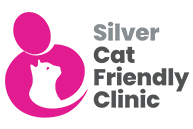Thursday early evening saw a great talk at the practice by Louise on the new Pets Passport regulations and what it means for your pets. Thankfully things have become easier and cheaper.
To travel with your pets abroad to countries that are part of the scheme you now only need
A Rabies vaccination (must be over 12 weeks old)
Completed passport, signed and stamped by an LVI
A 21 day wait from the vaccination till you are free to travel
The blood testing and six month wait is now not required. The relaxation in the rules has come about due to the risk of rabies being greatly reduced in the EU (1 in 9.8 million animals). This means we are now in harmony with the rest of the participating countries in the PETS Scheme.
To return after your holiday, dogs only need to be treated by a local vet for a nasty tapeworm called Echinococcus multilocularis. The treatment window is between 5 days and 24 hours prior to your return. This worm is not harmful to your dog but is a serious human health risk. Thankfully we do not have this worm in the UK which is why all dogs will be treated prior to their return to ensure our safety. Cats do not need to be treated as they are not carriers of this worm. In the EU Echinococcus is carried by foxes as well as dogs and is prevalent across most of Europe. Once your dog has been treated with a simple wormer, their passport will completed and stamped by the local vet and you can then return to the UK as normal.
Those of you who have travelled on the old scheme may notice that the tick treatment is now no longer required. This does not mean that the risks from tick bites abroad have gone away. We may moan about the weather in this country but it does protect us from some nasty parasites that are prevalent in warmer climates. Essentially our pets have no protection from these and can become extremely ill if they contract them.
Biting ticks and blood sucking insects (mosquitos and sand flies) strangely carry their own parasites. Unfortunately when feeding on your pet these parasites can travel from them into your pets blood streams. The most serious of which are
Leishmaniasis (biting sand flies transmit)
Heart Worm (mosquitos transmit)
Ehrlichiosis (tick bites)
Babesiosis (tick bites)
The good news is that these problems are not found everywhere abroad and where they are endemic it is easy to prevent problems by using a variety of treatments to repel the insects and prevent the bites. It is important to realise that tick spot ons like Frontline only kill the tick after it has bitten your pet (and thus run the risk of parasite transfer) so is not ideal to use these in those circumstances.
With all these germs please don't feel put off traveling. With some preparation it is simple and safe to do. Louise took her dogs to France last year and had a lovely time! Depending on the area you are travelling to, some protection products need to be used before you leave, so the best policy is to contact the practice at least a month before your travels with your holiday details so a bespoke parasite control plan for your pet can be formulated.
If you are interested in more information or would like a copy of the presentation from Thursday (with some great gory pictures!) then please contact the practice on 01483 455355 or email at




